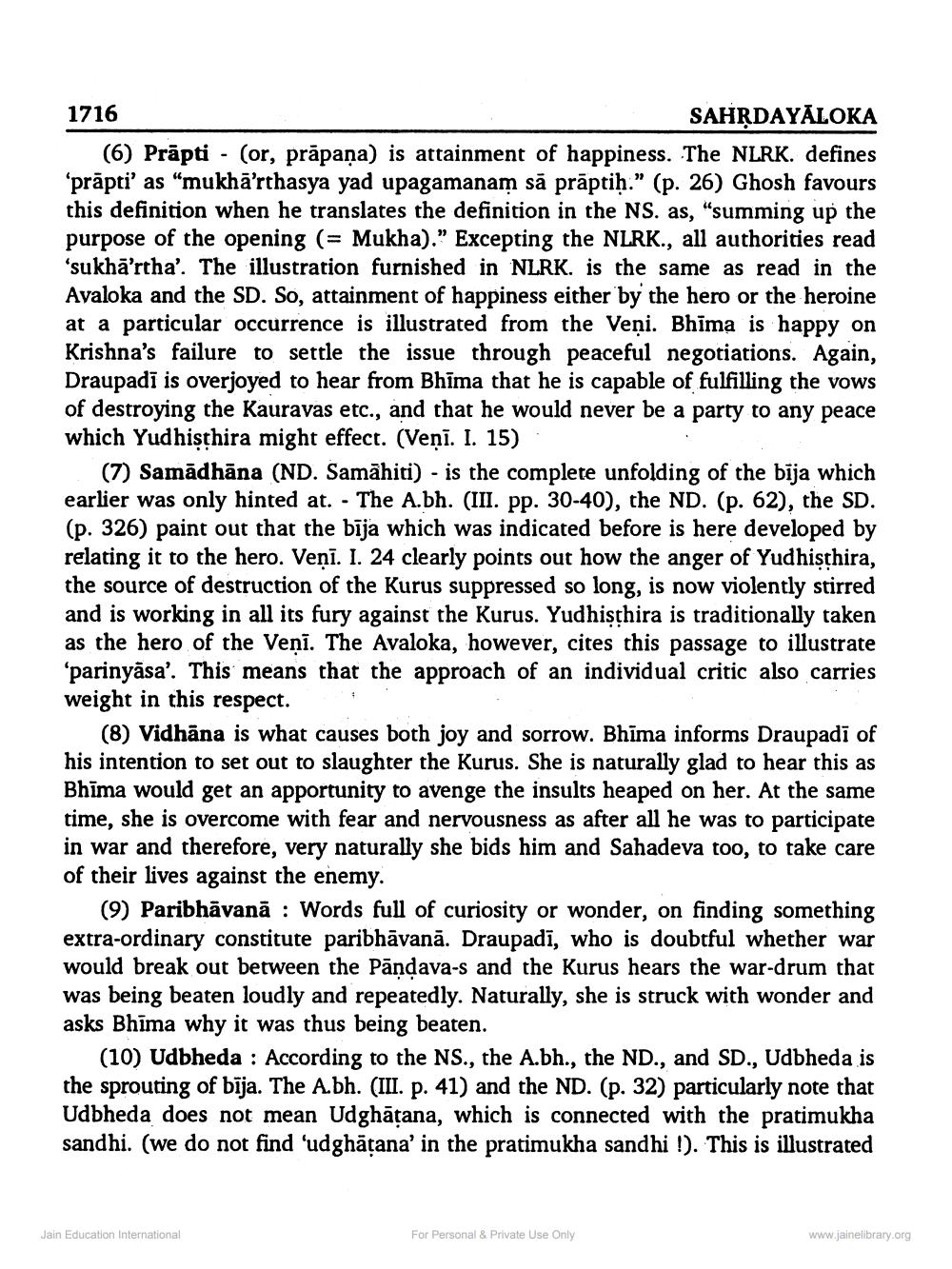________________
1716
SAHRDAYĀLOKA (6) Prāpti - (or, prāpaņa) is attainment of happiness. The NLRK. defines 'prāpti' as "mukhā'rthasya yad upagamanam să prāptih.” (p. 26) Ghosh favours this definition when he translates the definition in the NS. as, "summing up the purpose of the opening (= Mukha).” Excepting the NLRK., all authorities read 'sukhā'rtha'. The illustration furnished in NLRK. is the same as read in the Avaloka and the SD. So, attainment of happiness either by the hero or th at a particular occurrence is illustrated from the Veni. Bhima is happy on Krishna's failure to settle the issue through peaceful negotiations. Again, Draupadī is overjoyed to hear from Bhīma that he is capable of fulfilling the vows of destroying the Kauravas etc., and that he would never be a party to any peace which Yudhisthira might effect. (Venī. I. 15)
(7) Samādhāna (ND. Samāhiti) - is the complete unfolding of the bija which earlier was only hinted at. - The A.bh. (III. pp. 30-40), the ND. (p. 62), the SD. (p. 326) paint out that the bīja which was indicated before is here developed by relating it to the hero. Venī. I. 24 clearly points out how the anger of Yudhisthira, the source of destruction of the Kurus suppressed so long, is now violently stirred and is working in all its fury against the Kurus. Yudhisthira is traditionally taken as the hero of the Venī. The Avaloka, however, cites this passage to illustrate 'parinyāsa'. This means that the approach of an individual critic also carries weight in this respect.
(8) Vidhāna is what causes both joy and sorrow. Bhīma informs Draupadi of his intention to set out to slaughter the Kurus. She is naturally glad to hear this as Bhīma would get an apportunity to avenge the insults heaped on her. At the same time, she is overcome with fear and nervousness as after all he was to participate in war and therefore, very naturally she bids him and Sahadeva too, to take care of their lives against the enemy.
(9) Paribhāvanā : Words full of curiosity or wonder, on finding something extra-ordinary constitute paribhāvanā. Draupadī, who is doubtful whether war would break out between the Pandava-s and the Kurus hears the war-drum that was being beaten loudly and repeatedly. Naturally, she is struck with wonder and asks Bhīma why it was thus being beaten.
(10) Udbheda : According to the NS., the A.bh., the ND., and SD., Udbheda is the sprouting of bīja. The A.bh. (III. p. 41) and the ND. (p. 32) particularly note that Udbheda does not mean Udghātana, which is connected with the pratimukha sandhi. (we do not find 'udghātana' in the pratimukha sandhi !). This is illustrated
Jain Education International
For Personal & Private Use Only
www.jainelibrary.org




